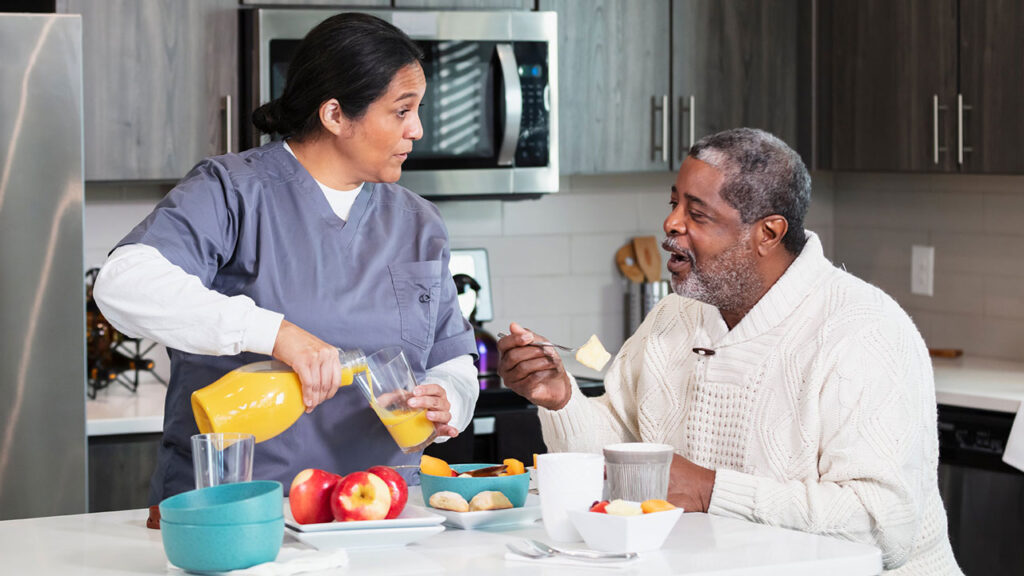Even when not faced with a global pandemic, burnout can impact healthcare professionals.
Front-line healthcare workers often face 12-hour shifts, at all times of the day, under the most stressful conditions. Burnout is caused by a combination of mental, emotional, and physical exhaustion.
According to Webmd.com, here are five signs that you are experiencing burnout:
- Pain – Multiple recurring physical symptoms like headaches, stomach aches, muscle aches
- Anger – Feeling angry and irritable
- Indifference – Loss of motivation, drive, and interest
- Negative – Feeling pessimistic, cynical
- Tired – physical and emotional fatigue
While there are several ways to combat the onset of symptoms — including sleep, exercise, nutrition and socialization — we turned to our WCU Alumni to see how they try to avoid burnout.
“I tell my staff to think of what makes them truly happy and then go do it. Right now, my COVID unit is a closed unit. Nobody floats in or out. So about five weeks in, they are getting burnt out. The best way I’ve found to help this is to be present. I sit on the floor and help with lights, cleaning, problem-solving, etc… also, lots of praise and treats such as food, coffee, etc. The best thing is to show them massive support! Another thing is that as a manager, I have learned to see cues and signs of fatigue and burn out. When I see it, I pull them aside and have a private conversation with them and ask if they’re OK. I give them resources on who to talk to, and make sure they know that they are important to me and the unit.” – Soojin Koh Chai, BSN ’12; WCU Orange County
“Once every two weeks, I have a ‘me’ day and focus on self-care. For example, I’ll get my nails or hair done, massage, spend time with my family, binge a TV show, spend time by the pool, go for a long run… it helps me recharge, especially when there are difficult workweeks.” – Alyza Sunny, BSN ’17; WCU-Dallas
“TLC baby! It is so easy to burn yourself out by just jumping into your profession and not stopping to smell the roses. Nights I am working, I will wash my face with good products, floss, and brush teeth mid-shift. Days I’m not working, I work out, read, spend time with family and advance my learning capabilities by trying something new. These COVID times are challenging but, they force us to stop and take a breath when we can!” – Ivan Molina, BSN ’19; WCU-Orange County
“I only work my three 12-hour shifts. Occasionally, if asked, I will do an extra shift or come in to help out. Also, I enjoy my weekends off with my kids by going and exploring Old City we live in.” – Priscilla Acosta, BSN ’19; WCU-Ontario
“I change up what I do. I am a travel nurse and I can float between specialties that I am qualified for.” – Stefanie Beeman Barr, BSN ’17; WCU-Ontario
“A solid workout gives me the opportunity to literally work out the stresses. I put all my mental fatigue and frustrations into pushing myself in a workout where I end up feeling a lot better mentally.” – Christine Marzan, BSN ’18; WCU-Los Angeles
“Working in psych, it is really mentally challenging. One method I use is the glass sliding door method — when a patient is angry, yelling or intrusive, I like to pretend I am behind a glass door and I choose to open it and let that patient in. This way I can mentally open up or close if I feel very drained. It is a mental exercise, but it helps in times of great stress and not letting negative things get to you!” – Saranaz Ashouri, BSN ’19; WCU-Orange County
WCU provides career guidance and assistance but cannot guarantee employment. The views and opinions expressed are those of the individuals and do not necessarily reflect the beliefs or position of the school or of any instructor or student.



